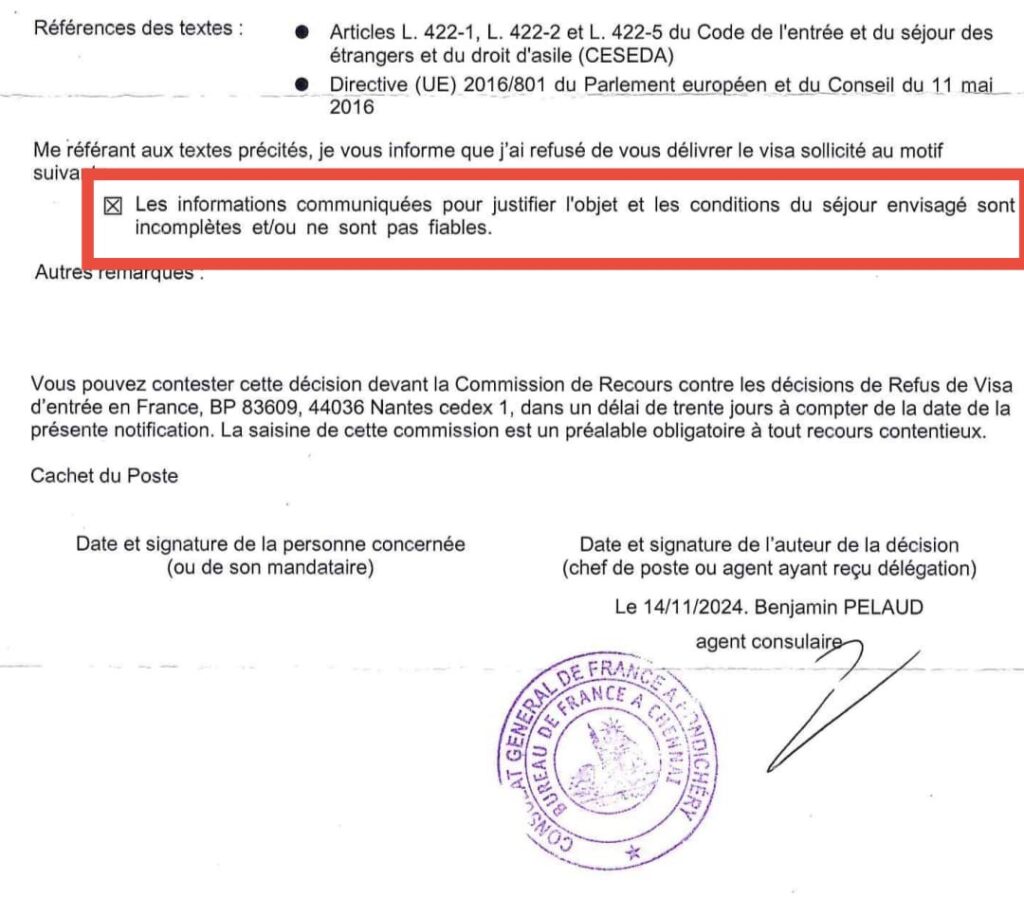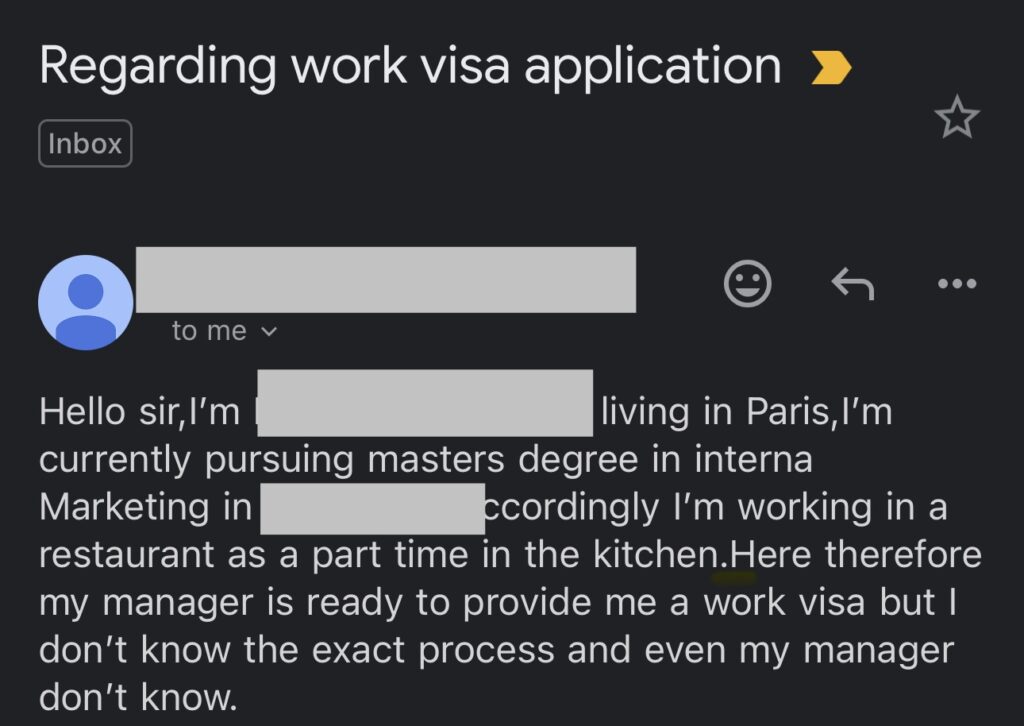Published on: November 29, 2024 | By: @rprasanth_kumar
Navigating life abroad as a student can be challenging, especially when balancing short-term opportunities with long-term goals. Here’s why staying focused on your studies is essential and how deviating from your plan could lead to complications with your visa and future prospects.
This article is a mix of official information and personal opinions based on the experiences of thousands of students over the years in France.
Question from a Student
Hello sir, I’m ABC living in Paris, I’m currently pursuing a master’s degree in Marketing at YYYY College. Accordingly, I’m working in a restaurant part-time in the kitchen. Here, my manager is ready to provide me with a work visa but I don’t know the exact process and even my manager doesn’t know.
My Answers
It is a very common question asked by students and my answers have not changed for many years.
There is a high chance of work permit and/or resident permit rejection because you are going off-track. I wouldn’t recommend doing it but it’s your life and so your choice if you want to complicate it unnecessarily. Here is the official procedure to convert your student resident permit to a work-related resident permit.
Step 1: Work Permit
- Your employer must publish the job offer for 3 weeks on the France Travail website. It is required to prove that a suitable local employee couldn’t be found.
- After this period, an application for a work permit known as autorisation de travail must be submitted by your employer, online via the ANEF website.
- For more details including the eligibility conditions, please refer to French Work permit: Everything to know about Autorisation de travail.
Step 2: Resident Permit Application
- As soon as you obtain your work permit from your employer, you should request a status change from Student to Salaried Employee.
- This can be done online at demarches-simplifiees.fr, via email, or offline with an appointment from your prefecture. The exact process depends on your local Prefecture.
- If you have a CDI job (permanent contract), you will receive a regular Carte Sejour Salarié valid for 1 year.
- If you have a CDD job (fixed-term contract), you will receive a Carte de Sejour Travailleur Temporaire valid for 1 year.
- To learn more about CDI, CDD, and other French job contracts, you can refer to this article Types Of Work Contracts In France – CDI, CDD, Etc.
Risks of Deviating from Your Study Plan
1. High Risk of Work or Resident Permit Rejection
- Reason: Applying for work and/or resident permits without completing your studies can raise red flags. Prefectures may perceive this as a deviation from your original purpose of coming to the country.
- Impact: Your application might be rejected, complicating your stay unnecessarily. You can also be issued an OQTF letter asking you to leave the French territory.
2. Non-Compliance with Student Visa Terms
- Risk: Leaving your course midway and applying for a status change to a work-related resident permit may violate the conditions of your student resident permit. The student visa was not given for this purpose.
- Consequences: This increases the likelihood of rejection by the Prefecture, which could have lasting implications for your future resident permit applications.
3. Perception of Wrong Intentions: Following this process may give the impression to the Prefecture that your intention was not to study but to find work in France.
Broader Implications: Student Visa Rejections
Non-compliance with student visa terms contributes to rising visa rejection rates.
- Prefectures are becoming more stringent, and any deviation from the original purpose of your stay may affect not only your resident permit renewal application in France but also overall visa approval statistics for student visas.
- This information can influence the French Embassies and Consulates abroad that process student visa applications.
Here is an example of a student visa rejection with the following reason, The information in your student visa application is incomplete and/or not reliable.

Support This Blog!
If you’ve found my articles helpful, interesting or saving your time and you want to say thanks, a cup of coffee is very much appreciated!. It helps in running this website free for the readers.


